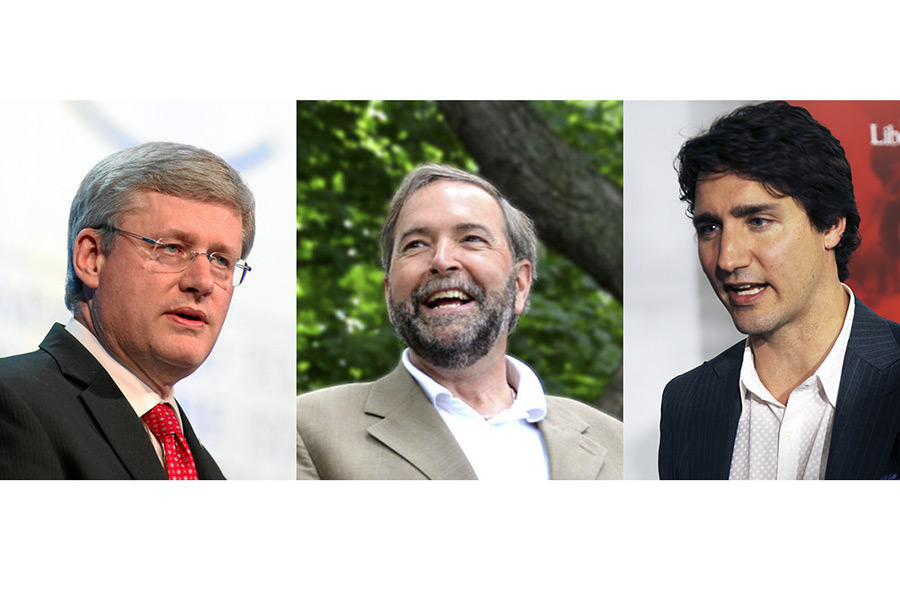One year ago, few could have guessed how dramatically the Canadian political landscape was about to change.
At the federal level, Canada’s highest office was held by a conservative Albertan, Stephen Harper, who faced a tough but winnable election against two left-leaning politicians, the New Democratic Party’s Tom Mulcair and the Liberals’ Justin Trudeau.
At the provincial level, Progressive Conservative Premier Jim Prentice was preparing to call an election to secure his mandate to pass a new budget in Alberta. It was an election Prentice thought his party would easily win; after all, the province had right-leaning governments for more than 80 years.
But 2015 proved that political assumptions can be wrong. In Ottawa, the Liberals took control of the federal government in an historic landslide. And in Alberta, the left-leaning NPD shocked the nation when it dismantled the province’s decades old conservative stronghold.
University of Lethbridge political scientist Harold Jansen said both elections show a shift in the Canadian political landscape.
For decades, Canadian power was centralized in Ontario and Quebec. But that changed in the 1980s and 1990s as Alberta’s gas and oil industry began to boom. Soon Alberta’s economy became one of the nation’s strongest and the province’s population rapidly increased. That economic power was soon married with political power in 2006 when Harper, who represented the western part of Calgary in the House of Commons, became Prime Minister.
Trudeau, the man who replaced Harper, is the son of one of Canada’s most famous prime ministers, Pierre Trudeau, and hails from Quebec.
“(The elections were) a visible sign that the economic and political power is shifting back east,” Jansen said. “But it’s too early to tell if that’s going to be a long-term thing.”
Jansen pegged the NDP’s success during the May 2015 general election to changing demographics in Alberta. As the province’s economy grew, more people relocated to Alberta. From those newcomers, Jenson said, the NDP was able to piece together a winning coalition.
This shift in political power comes on the heels of a decline in Alberta’s energy sector, which has sent shockwaves across the province. The decline has also put a dent in the NDP leader’s plans for the province. Jansen said that during last year’s general election, the NDP’s Rachel Notley promised to increase spending on government services, particularly education.
“It’s a challenging environment for them,” he said. “They made a lot of promises during the election and they’re trying to downplay the expectations because they’re not going to be able to deliver on a lot of them.”
Just last week, the Alberta government announced a two-year wage freeze for non-union employees.
While some in the province have blamed the NDP for its economic troubles and spending cuts, Jansen said that’s shortsighted and pointed to the previous administrations. For years, provincial governments relied heavily on oil and gas revenues to fill coffers and cut taxes. But Jansen said that has resulted in a sparsely funded rainy day account.
“The provincial government faces this tough problem where they have to increase taxes and cut spending during an economic downturn,” he said. “And that’s the legacy of our politics for the last 40 years.”
Jansen said one way the NDP government could stimulate the economy is by trying to increase infrastructure spending, specifically with roads and bridges. Jansen said because of the oil industry’s struggles, it would be easier to break ground on construction projects because the government wouldn’t be competing with cash-strong oil companies for contractors. And there’s another type of infrastructure improvement that those on the left and right appear to agree on: pipelines. Just this week, federal Conservatives and the Alberta NDP both called on the federal government to support pipeline construction in order to help the “crippled” oil industry.
